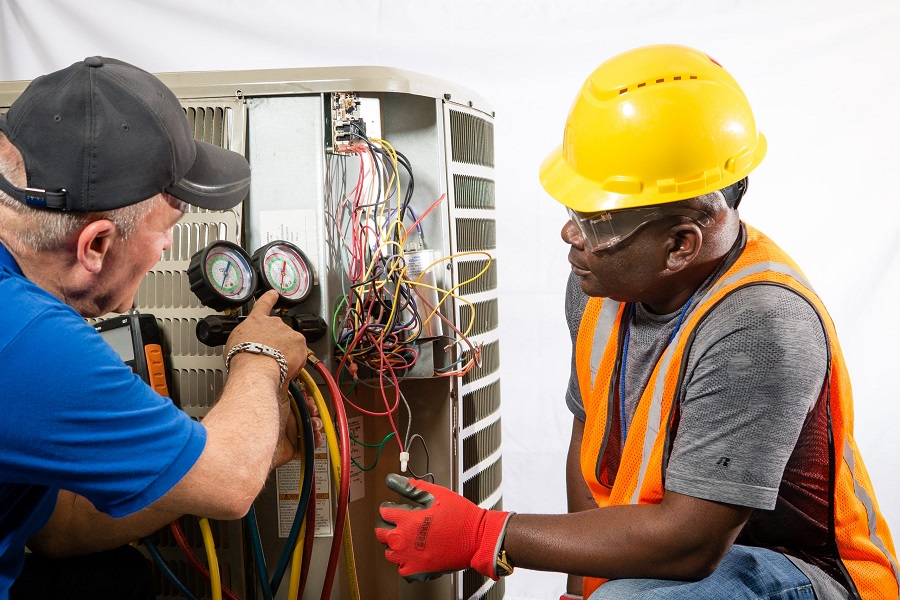When your furnace breaks down unexpectedly, finding a reliable heating services contractor in Indianapolis, IN becomes your top priority. As winter temperatures drop, knowing when to call for help and what to do before the contractor arrives can make a huge difference in your home’s comfort and safety. In this guide, we’ll walk through the warning signs of heating failure, steps you can take before help shows up, how to choose the right contractor, what to expect in terms of costs, and ways to prevent future heating emergencies.
Red Flags: How to Spot a Heating Failure Before It’s Too Late
When your heating system starts to fail, it often gives warning signs before completely shutting down. Catching these signs early can prevent a full-blown emergency:
-
Inconsistent Heating: If some rooms feel colder or warmer than others, it could indicate an issue with your furnace or ductwork.
-
Strange Noises: Odd banging, rattling, or screeching noises could point to mechanical issues needing urgent attention.
-
Short Cycling: If your furnace turns on and off repeatedly, it may be overheating or struggling to maintain the desired temperature.
-
No Warm Air: If the system is running but no warm air is coming through, you might have a bigger problem, like a broken blower fan or pilot light issue.
-
High Energy Bills: A sudden jump in your energy bill without a clear reason may mean your system is working inefficiently.
Noticing these red flags early can save you from costly repairs. But once you’ve identified an issue, what should you do next? Let’s explore some quick actions to take while waiting for your contractor.
Quick Fixes: What You Can Do Before the Pros Arrive
While waiting for professional help, there are several steps you can take to manage the situation and protect your home from further damage:
-
Turn Off the System: If you hear strange noises or notice erratic behavior, switch off the heating system to avoid worsening the problem.
-
Check the Thermostat: Double-check your thermostat settings to ensure the problem isn’t a simple fix. If the settings are correct and the heat still isn’t working, call for help.
-
Replace Air Filters: A clogged filter can cause airflow issues. If it’s been a while since you last changed your filters, swap them out.
-
Seal Off Windows and Doors: Make sure all windows and doors are tightly closed to keep the heat inside and prevent drafts from making the problem worse.
-
Use Backup Heating: If you have portable heaters or an electric fireplace, use them safely to maintain warmth while you wait for the contractor to arrive.
These simple actions can prevent further damage and keep your home livable while help is on the way. Now, let’s look at how to choose the right contractor for your emergency heating repairs.
Finding the Perfect Contractor: Your Guide to Emergency Heating Experts
In an emergency, choosing the right contractor can make all the difference in both the speed and quality of repairs. Here’s how to ensure you find the best one for the job:
-
Verify Licenses and Certifications: A licensed and certified contractor will have the skills and training to handle your heating system. Always ask for proof before hiring.
-
Prioritize 24/7 Availability: Heating emergencies don’t follow business hours, so look for contractors that offer 24/7 emergency services.
-
Check Reviews and Referrals: Online reviews and recommendations from friends and family can give you a good idea of the contractor’s reputation.
-
Get Written Estimates: Ensure transparency in pricing by requesting a written estimate before any work begins to avoid unexpected costs.
-
Ask About Warranties: A reputable contractor will stand by their work. Ask if they offer warranties on repairs and parts to protect your investment.
Once you’ve found the right contractor, it’s important to understand the financial side of emergency repairs. Let’s explore what costs you might encounter.
The Cost Breakdown: What to Expect from Emergency Heating Repairs
Emergency heating repairs can vary in cost depending on the problem, the system, and the timing of your service call. Here’s what you can expect financially:
-
Service Call Fees: Emergency HVAC service calls generally range from $75 to $150 just to have a technician assess the issue.
-
Labor Costs: Expect to pay between $75 and $200 per hour for labor. Calls made after-hours, on weekends, or holidays may carry higher rates.
-
Replacement Parts: Simple parts like filters or thermostats can cost $50 to $100, but larger components like heat exchangers can run into the thousands.
-
Complete System Replacement: In worst-case scenarios, if repairs are too costly, replacing the system can cost between $2,500 and $6,000.
While these costs might seem overwhelming, many emergencies are preventable with regular maintenance. Let’s discuss how you can avoid future heating crises.
Prevention Is Key: Simple Tips to Avoid Future Heating Emergencies
To minimize the risk of sudden heating failures and avoid emergency repair bills, follow these proactive steps:
-
Schedule Regular Maintenance: Annual tune-ups from a professional contractor can catch minor issues before they turn into big problems.
-
Change Air Filters Regularly: A clogged filter strains your system and reduces its efficiency. Replace them every 1 to 3 months during heavy use.
-
Watch for Warning Signs: Keep an eye on your system’s performance. If you notice strange noises or rising energy bills, don’t wait to address the issue.
-
Test Thermostats: Make sure your thermostat is functioning properly by checking it periodically, especially before the winter season starts.
-
Insulate and Seal Ductwork: Proper insulation and sealed ducts reduce energy waste and ensure your system doesn’t overwork itself.
Taking these preventative steps can help ensure your heating system runs smoothly throughout the winter, reducing the likelihood of costly emergency repairs.
Wrap-Up: Keep Your Home Cozy and Emergency-Free All Winter Long
Keeping your home warm during an Indianapolis winter is critical to your comfort and safety. By recognizing early warning signs, taking quick action, and choosing a reliable contractor, you can handle heating emergencies with confidence. Regular maintenance and simple preventive measures will not only extend the life of your heating system but also keep you from needing emergency repairs in the future. Make sure your home stays warm and cozy, no matter how cold it gets outside.

